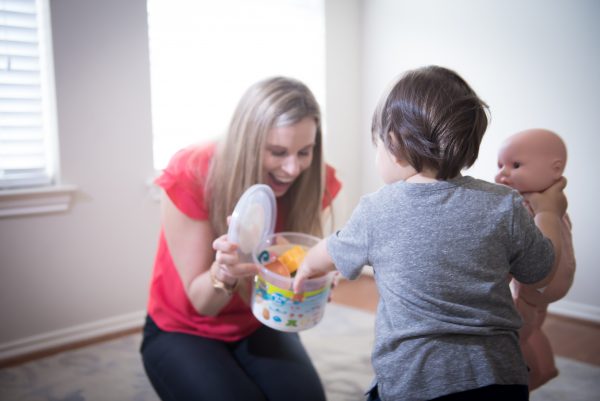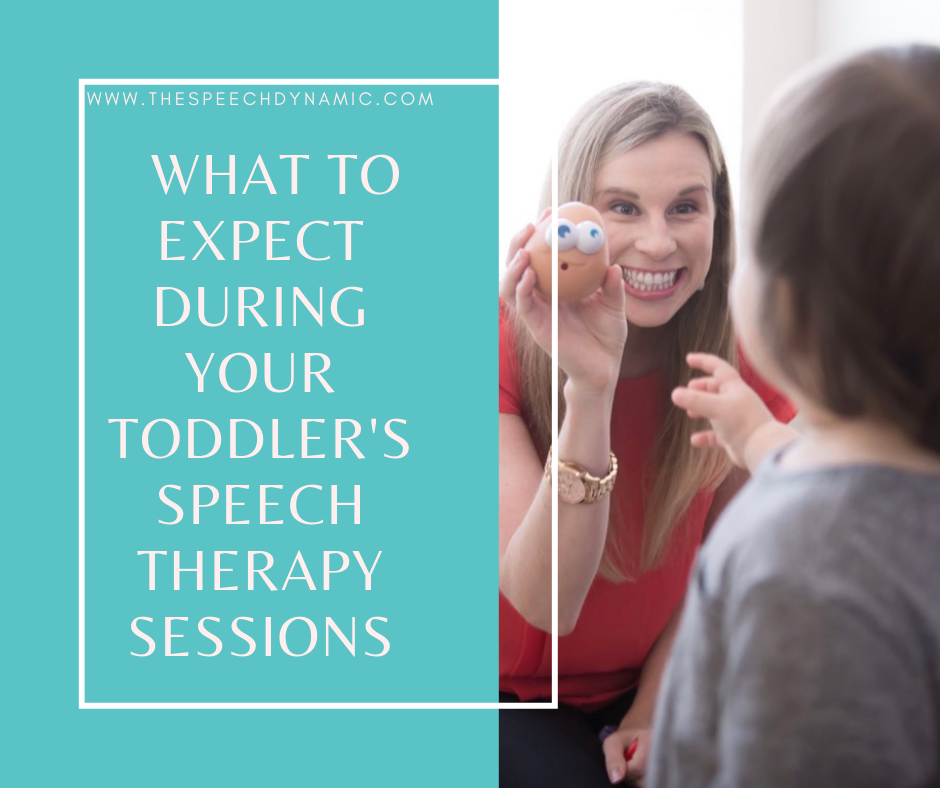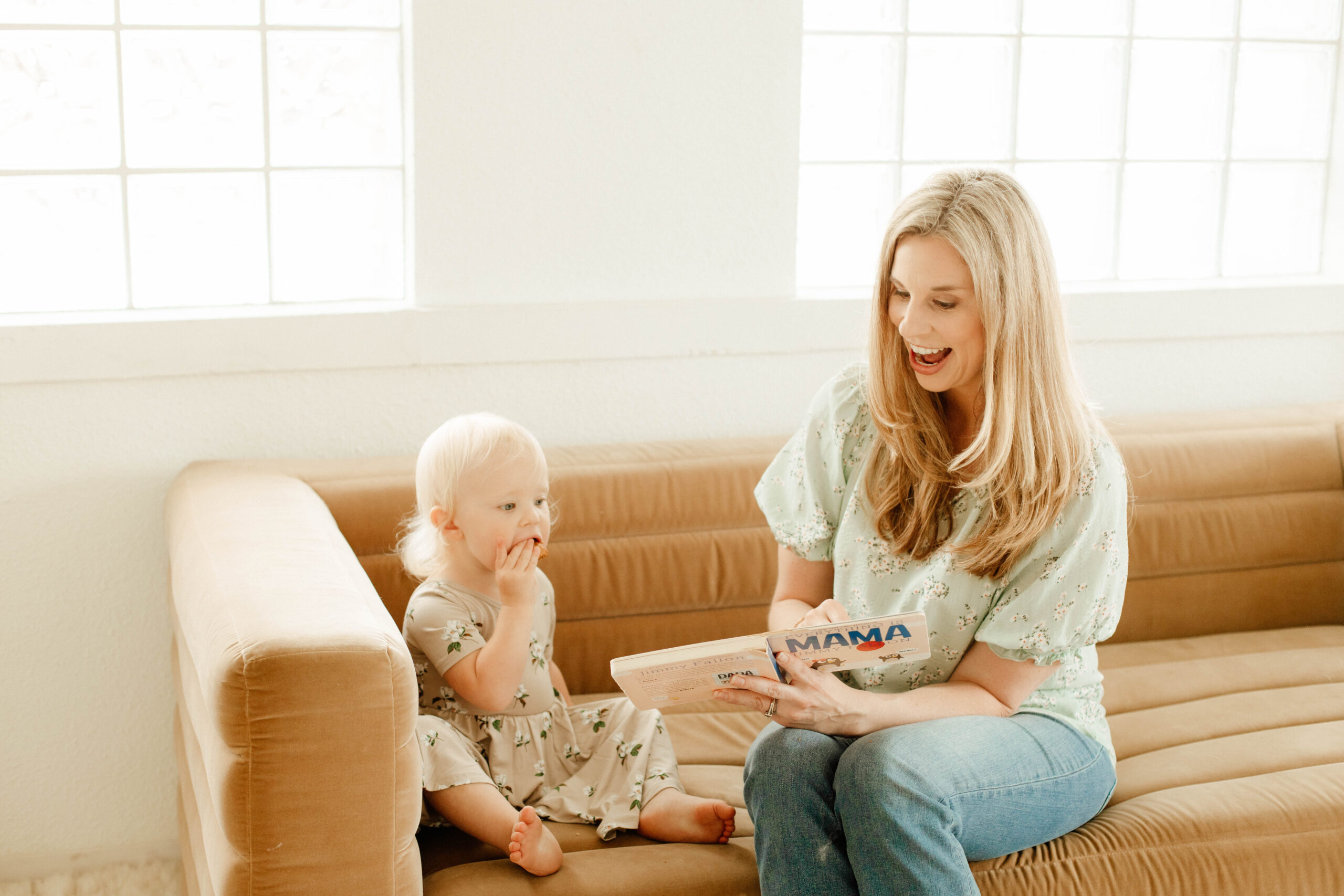
Is your toddler beginning speech therapy? You may be wondering what to expect. After the initial evaluation (learn about what to expect during the evaluation process here), your Speech Pathologist will give you a full picture of your toddler’s communication skills and let you know if they feel your child would benefit from therapy. Speech therapy with toddlers looks much different than therapy with older children or even preschoolers. Here are five things your can expect during your toddler’s speech therapy sessions.
1) Toddlers will be toddlers:
In a study by Gaertner (2008), the authors found the normal range of a toddler’s attention span is 3-6 minutes. Depending on your toddler’s engagement level within the activity, this may be even shorter! Your Speech Pathologist will not expect your toddler to sit for long periods of time. It’s our job to think of creative and fun ways to keep your toddler engaged and switch gears when we need to!
2) It’s not flashcards (or apps):
Toddlers learn through play! Speech therapy with this age is not drill practice, but rather teaching speech and language concepts in a fun and meaningful way! Pictures and visual cues may be used to enhance a lesson (such as specific sounds), but will be embedded into play-based activities. In their award-winning book, Einstein Never Used Flashcards, authors Kathy Hirsh-Pasek and Roberta Golinkoff state, “It’s not with drills or computer programs, but with daily conversation that gives the child motivation and allows time to respond. When children interact with real people in a social context, they are motivated to express their needs, thoughts, and feelings. Nature has programmed us to learn through social relationships.”
3) Expect “homework”:
Speech homework with toddlers focuses on small adjustments throughout the day to build your child’s communication skills. In general, this will be 1-2 strategies to focus on throughout the week. Strategies such as following your child’s lead and building on what they say makes a huge impact on language development!
4) Daily routines are great for communication:
Communication happens all day, every day, and not only during “speech time.” Therapy often focuses around toys, but it can happen anywhere! If your toddler needs a snack or diaper change, don’t feel like that is “taking away” from the session. In fact, those are excellent opportunities for communication and to apply the strategies you have been learning! “Research shows that common, ordinary, mundane daily interactions with your child are all you need to promote excellent language development (From Einstein Never Used Flashcards).
5) Expect Movement:
In their book, “A Moving Child is a Learning Child,” authors Gill Connell and Cheryl McCarthy state, “Sitting still is one of the most advanced demonstrations of vestibular maturity, and the vestibular system is developed through movement. If you want a child to learn to sit still, you’ve got to let him move.” A Pediatric Speech Pathologist who works with toddlers understands that young children need to move to learn. They can help you think of new and fun ways to keep your child moving and learning!
 Brooke Andrews, M.A. CCC-SLP is owner of The Speech Dynamic and specializes in providing speech, language, and feeding therapy to toddlers and preschoolers in Houston, TX. Her clinical expertise include early intervention, language delays, and apraxia of speech in young children.
Brooke Andrews, M.A. CCC-SLP is owner of The Speech Dynamic and specializes in providing speech, language, and feeding therapy to toddlers and preschoolers in Houston, TX. Her clinical expertise include early intervention, language delays, and apraxia of speech in young children.






